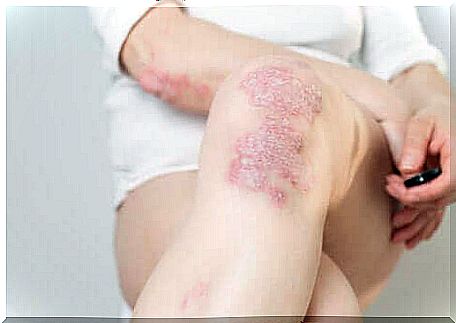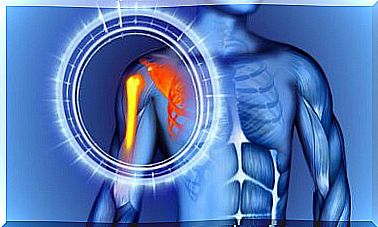Psoriasis And Coronary Heart Disease: How Are They Related?
The relationship between psoriasis and coronary heart disease was discovered not too long ago. At first, some scientific studies suggested there was a link, which was later confirmed.

Between psoriasis and coronary heart disease, there is a point of contact. Although one might not think of this association, we currently know that patients are more likely to experience a coronary event than the rest of the population.
The explanation comes from the inflammation. Although it is a disease that primarily attacks the skin, psoriasis in itself is an inflammatory process. And this chronic inflammation has something to do with the immune system.
Since there is chronic inflammation, the body lives in a state of stress. Stressed cells develop their metabolism in an environment that is not at all healthy, which has long-term consequences. It is known that the inflammation extended states are harmful even when they do not produce obvious symptoms.
Patients with this disease also experience heart attacks before other people, at earlier ages. Likewise, they live with an increased cardiovascular risk, long before they turn 50, which is the age at which the likelihood of having coronary artery disease increases.
What is psoriasis?
Let’s take a look at what psoriasis is first to find out precisely how it relates to coronary artery disease. It is a chronic inflammatory pathology which is localized especially on the skin. It can also show symptoms in the joints and in some internal organs, but to a lesser extent.
Inflammation of the skin from psoriasis causes cells to build up on the epidermis. These cells cluster together to form patches that itch, acquire a red color and lack hydration.

The classic symptoms of psoriasis are:
- Dry skin.
- Nail alterations.
- Arthralgia – joint pain.
- Red patches with scales on the skin.
- Generalized itching, but especially localized at the level of the red patches.
Although we do not know 100% of the cause of psoriasis, we do know that it is an autoimmune problem. The defense cells of the human body do not recognize the skin cells and attack them. During this attack, we see the intervention of white blood cells and substances of the immune system, such as antibodies.
The association between psoriasis and coronary heart disease is not one of the symptoms of the pathology. This means that not all patients with psoriasis are prone to a heart attack. In fact, a greater presence of cardiologic facts has only been shown in patients with psoriasis.
Data on the association between psoriasis and coronary artery disease
Various studies from around the world have been able to demonstrate, with concrete data, that the association between psoriasis and coronary heart disease exists. At first, they were able to find links that suggested this but, over time, other evidence came to confirm it.
So much so that, in cases of severe psoriasis, with very marked symptoms, cardiovascular mortality is up to 50% higher. This means that people with psoriasis are more likely to die from heart events than anyone else.
Other studies evaluated for ten years those who suffered from this pathology. At the end of this period, they identified 28% more coronary heart disease in the follow-up group, compared to the general population.

As we mentioned earlier, this must also be understood in the context of inflammation. Any process that causes chronic inflammation in the body ends up affecting multiple organs and tissues. In addition to psoriasis, we can include in this set of pathologies rheumatoid arthritis and lupus erythematosus, which are associated with more cardiovascular deaths.
Let us also not forget the statistics, which show that patients suffer from greater stress and high blood pressure than the rest of the population. These are two cardiovascular risk factors.
The association between psoriasis and coronary heart disease
With psoriasis, there is a greater risk of coronary heart disease because patients have a greater amount of plaque in their arteries. These plaques are not calcified and are not related to the individual’s cholesterol levels.
Incidentally, the plaques appear earlier when the patient with psoriasis is still young. This atherosclerosis in patients considerably increases the cardiac risk.

Plaque in the arteries decreases blood flow to tissues, including heart muscle, and is at greater risk of rupturing. The etiology of acute myocardial infarction, for example, is in the rupture of plaques.
If, to these plaques, we add the chronic inflammatory process, then the risk of rupture is imminent. Inflammatory substances are able to stimulate the formation of plaque and cause it to rupture in the final stretch.
If you have psoriasis this is a cause for concern, but don’t despair. It is essential to control your symptoms through medical monitoring, and strictly. Recent studies have shown that once the inflammation is stabilized, the possibility of coronary heart disease is reduced.
If you have any doubts, consult a professional and follow the indicated therapy. Scientific advancements and discoveries on ways to control psoriasis have advanced significantly and the quality of life has improved dramatically.









